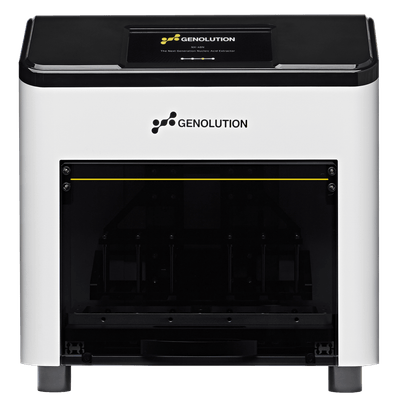Nucleic acids, namely DNA (deoxyribonucleic acid) and RNA (ribonucleic acid), are key molecules that store and transmit genetic information in organisms. These biopolymers consist of monomers - nucleotides, which are connected in long chains. They play a critical role in all biological processes, including the coding, transmission and implementation of genetic information.
DNA is the main carrier of hereditary information in cells, while RNA is involved in the processes of translation and gene regulation. In modern biology and medicine, nucleic acid research is the basis for studying the genome, diagnosing diseases and developing therapeutic strategies. To conduct such research, it is necessary to obtain pure samples of DNA or RNA, which makes nucleic acid isolation procedures an important component of molecular biology.
Nucleic acid isolation methods
Isolation processes are based on the separation of nucleic acids from other cell components, such as proteins, lipids and carbohydrates. Depending on the source of the material and the final goal, different approaches are used:
- Phenol-chloroform method – a classic method that involves the extraction of nucleic acids with organic solvents. This is a laborious method that requires the use of toxic substances.
- Column chromatography – is based on the ability of nucleic acids to bind to silica in the presence of certain salts.
- Magnetic approach – the use of magnetic particles coated with reagents that specifically bind DNA or RNA. This method is becoming increasingly popular due to its convenience.
- Automated systems – provide a fully automated process that minimizes human error and increases reproducibility.
Types of systems
There is a wide range of nucleic acid isolation systems, varying in their operating principle, efficiency and cost:
- Manual kits (systems). Manual kits are based on the use of reagents and filter columns. They are suitable for small laboratories and are moderately priced.
- Magnetic systems. They use magnetic particles to bind and purify nucleic acids. This is a simple and fast method, especially for working with a large number of samples.
- Automated high-tech systems. Such high-tech systems allow the entire process to be carried out automatically. They are suitable for large clinical and research centers.
Applications of isolated nucleic acids
Pure nucleic acids are used in various fields of science and medicine:
- Molecular diagnostics. Used to detect genetic mutations, viruses (e.g. SARS-CoV-2) and bacteria using PCR analysis.
- Clinical research. Blood, plasma, sputum, bronchial secretions, cerebrospinal fluid, and other biomaterials help in the diagnosis of diseases and monitoring therapy.
- Agribusiness. Genome analysis of food, seeds, wheat grains, and meat allows you to assess the quality of products and detect their genetic modification.
Tips for selection and use
- Evaluate the source of the material. To work with different samples - tissues, cells, paraffin blocks, smears, or liquids (e.g., urine, feces, semen) - you need to choose the appropriate kit.
- Consider the purpose of the study. For accurate analysis of samples, for example, in clinical diagnostics or agrogenetic studies, choose systems with maximum purification efficiency.
- Automation or manual methods. For large volumes of samples, it is better to use automated systems, while for single samples - manual kits are sufficient.
- Reagent quality. High-quality reagents guarantee high purity and integrity of the isolated nucleic acids.
The use of modern systems for the isolation of nucleic acids is an important step in ensuring the accuracy and reliability of results in a wide range of research and diagnostic applications. You can buy equipment in the Empirika online store at affordable prices. Delivery is carried out to all regions and cities of Ukraine.


